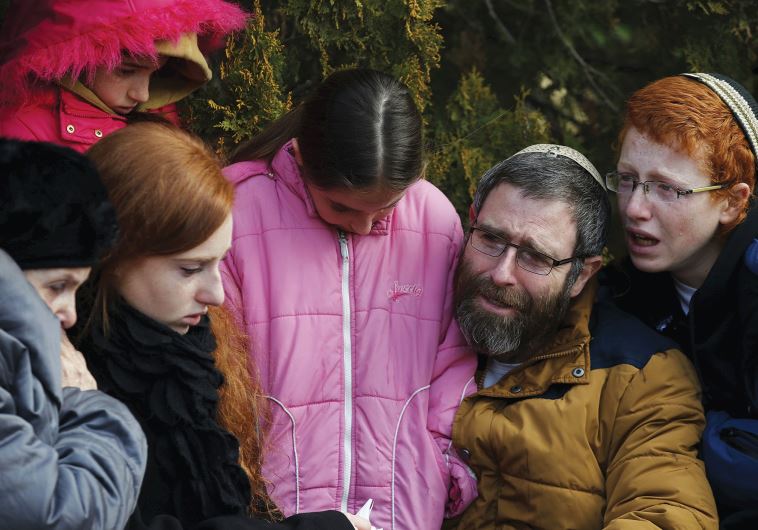Social media in the service of terrorists
The same algorithms that micro-match advertising to consumer preferences must be employed to ban terrorists and their sympathizers
 THE FAMILY of the late Dafna Meir mourn during her funeral ceremony in January.
THE FAMILY of the late Dafna Meir mourn during her funeral ceremony in January.